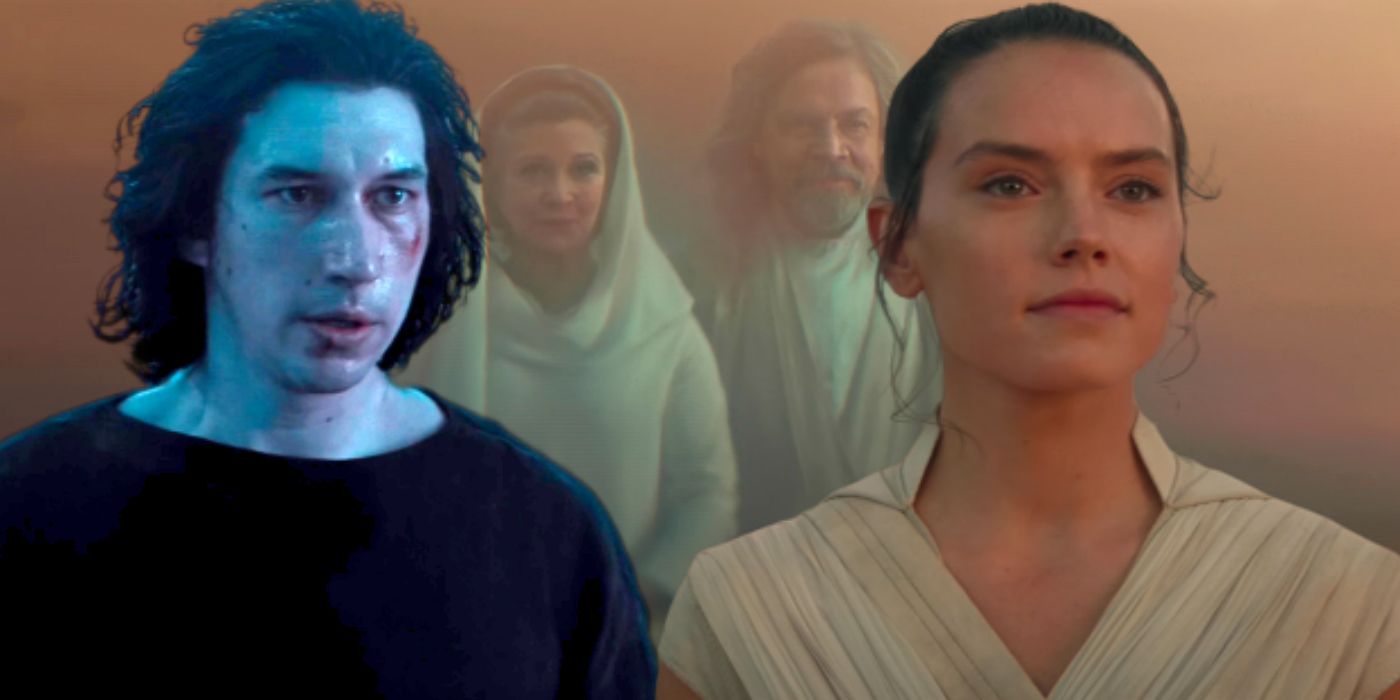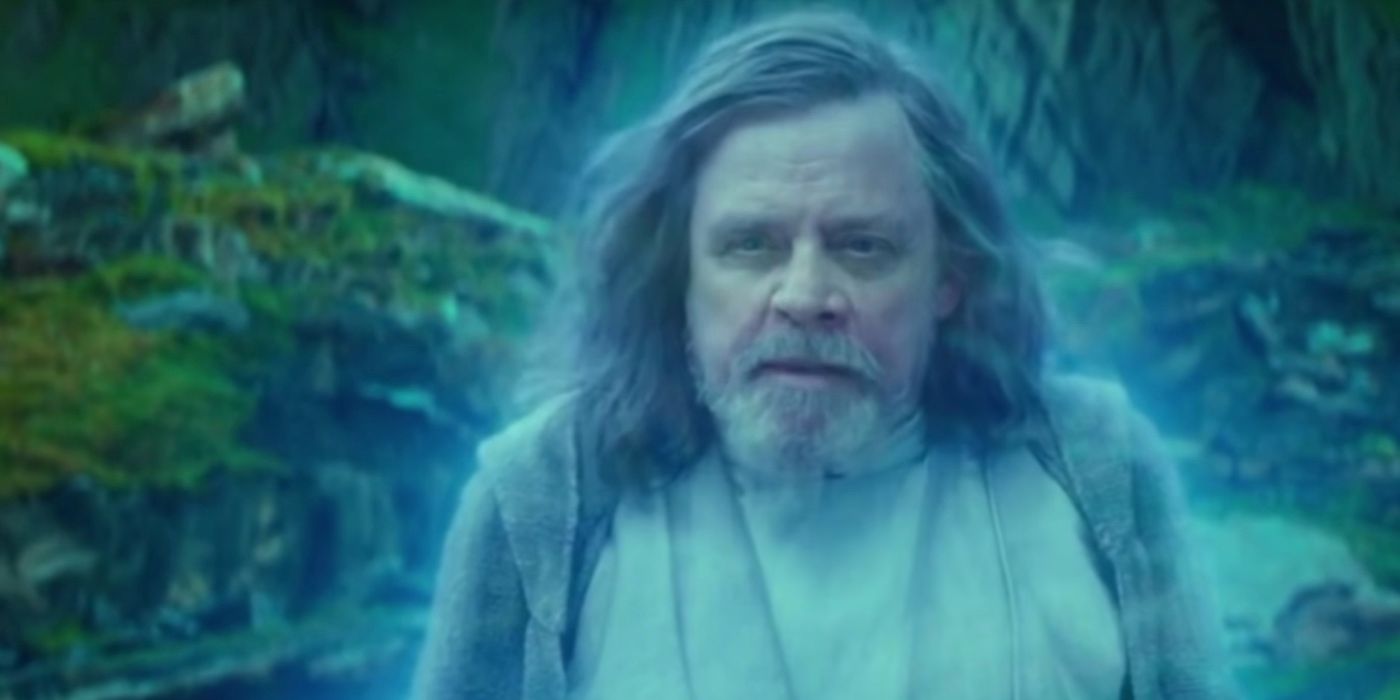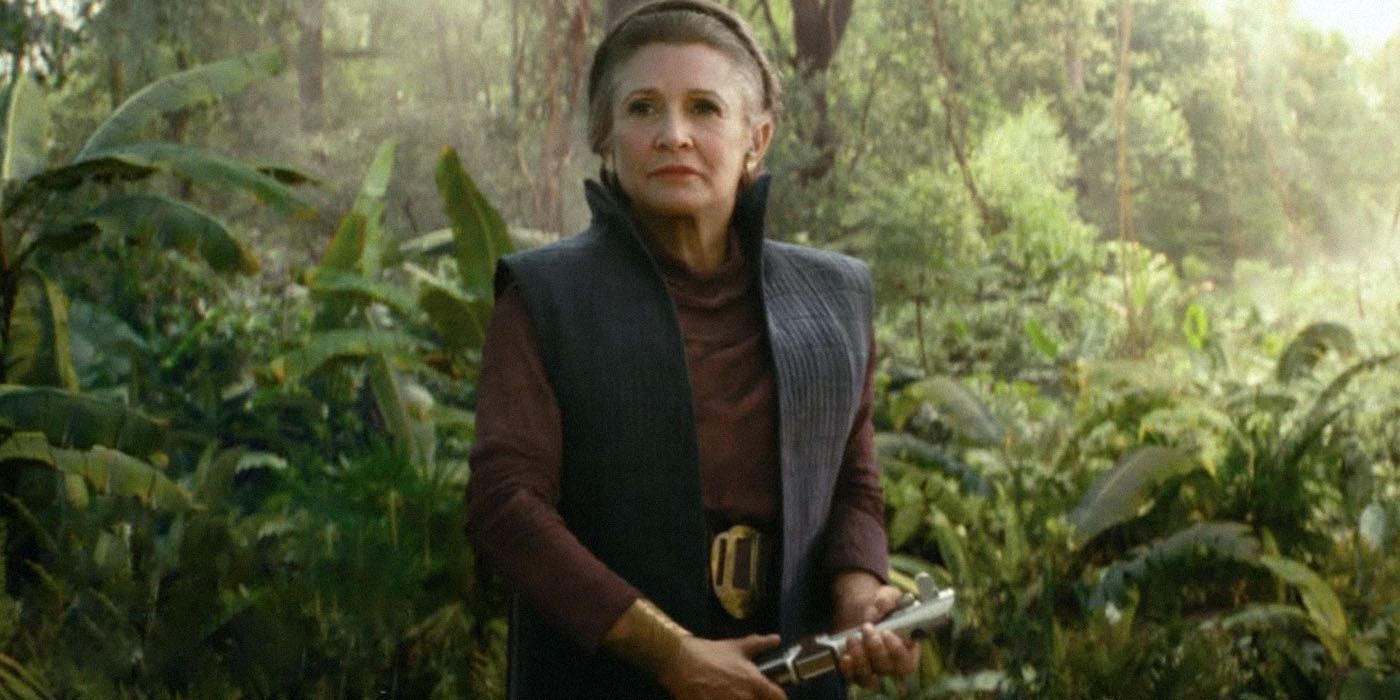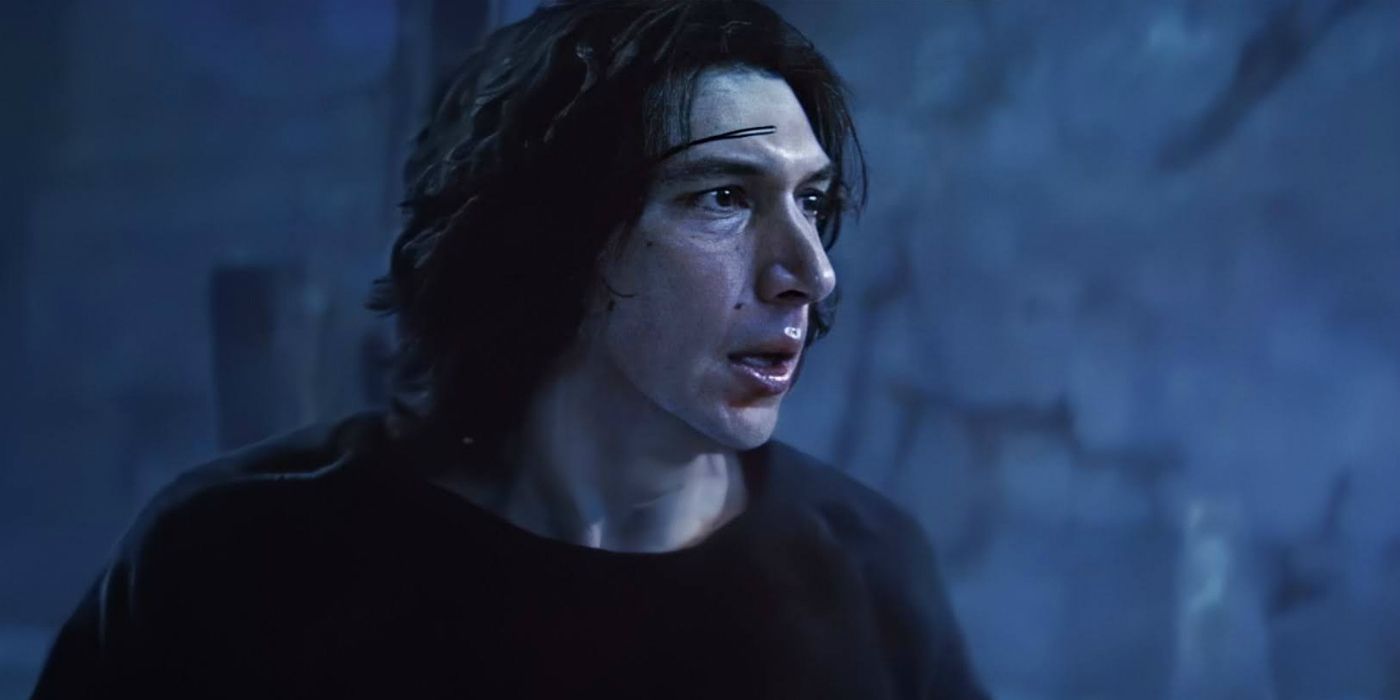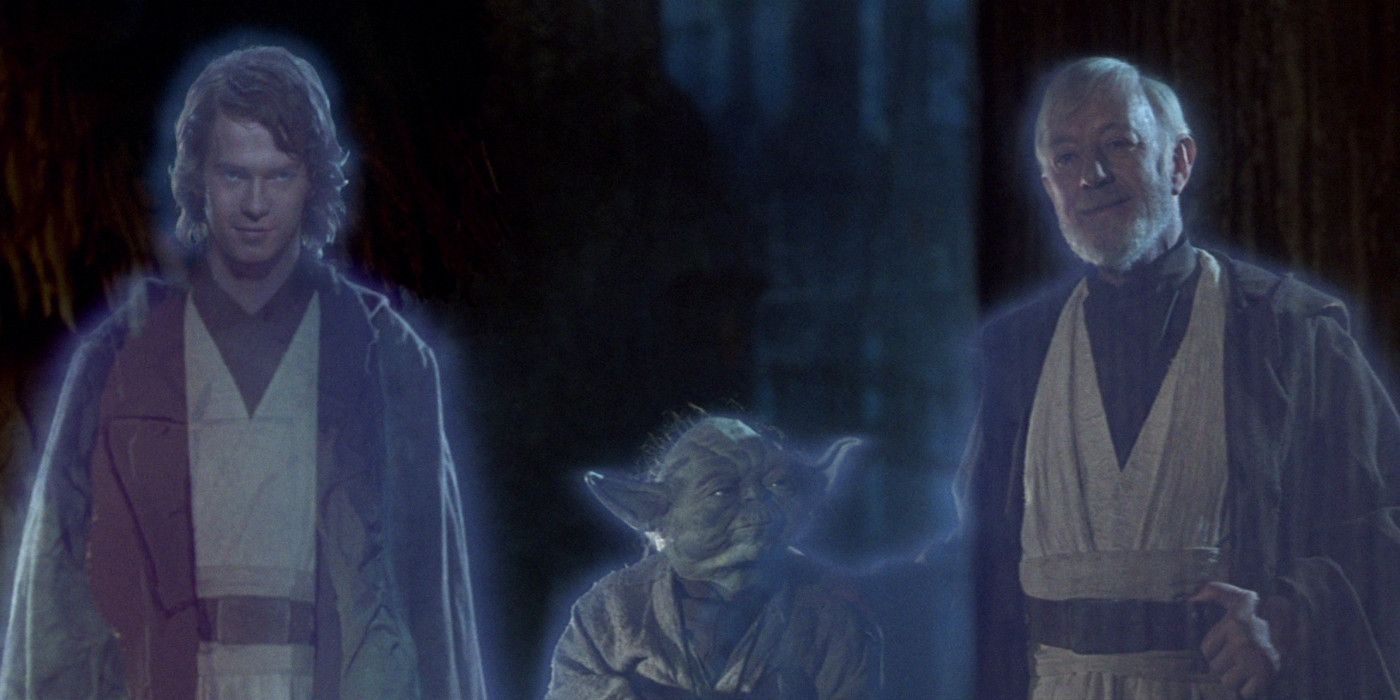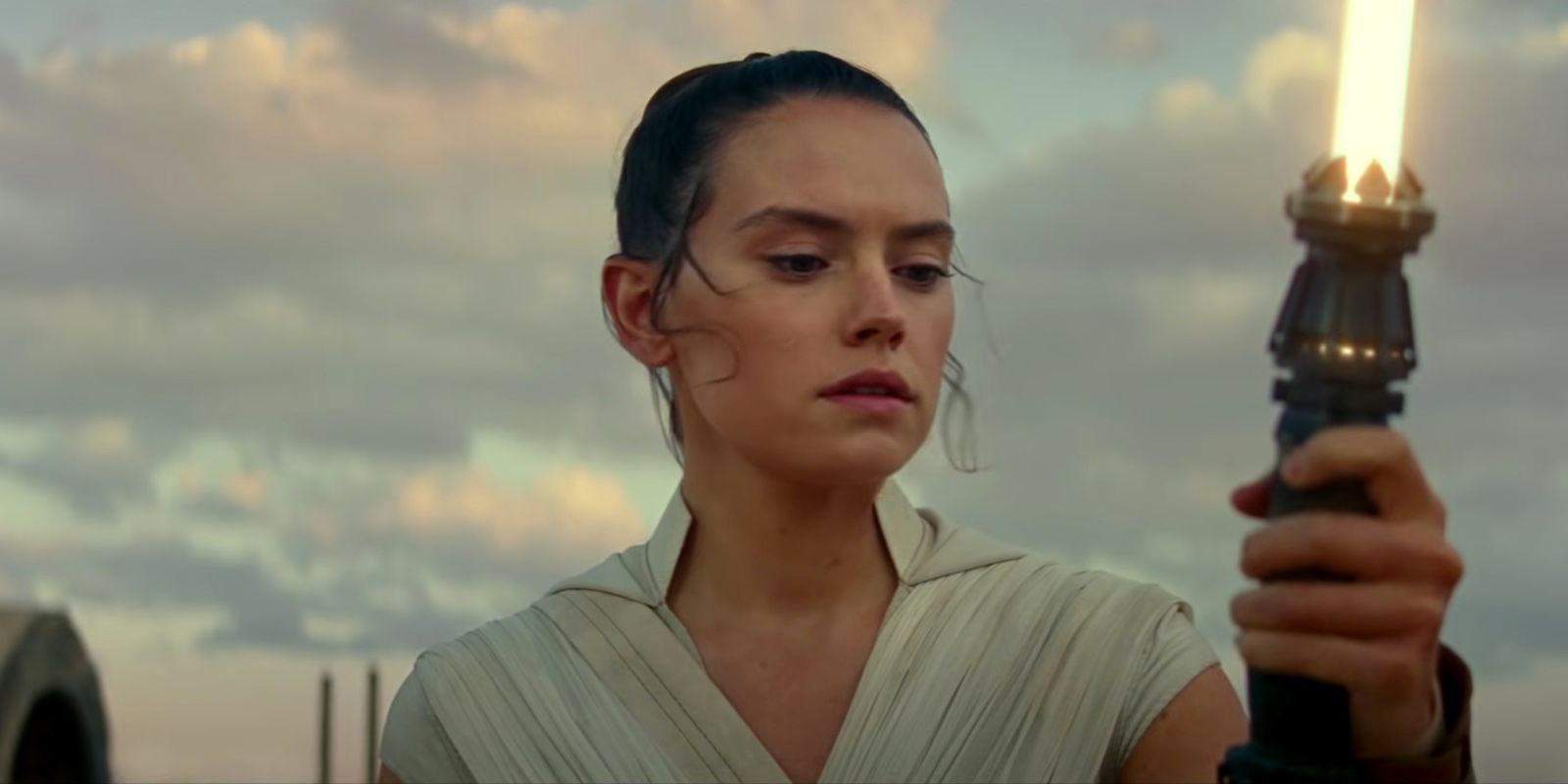Star Wars: The Rise of Skywalker lives up to its name with a quintet of characters who fall under the Skywalker banner. The future of Star Wars on the big screen is one of the biggest unknowns in cinema right now, and while fans can be sure that new movies are coming, there has been no indication as to what those projects might look like or involve. That's partially because The Rise of Skywalker drew a line under the franchise so far, labeling the past 9 episodes "the Skywalker saga."
Beginning chronologically with Qui-Gon Jinn's discovery of Anakin Skywalker, the Star Wars prequel trilogy covers young Annie's Jedi training and subsequent fall to the dark side, as well as the birth of a new generation with Luke and Leia. The original trilogy chronicles Luke and Leia's battle against their evil father and Anakin's fatal redemption. And finally, the sequel trilogy focuses on the Skywalker bloodline ending and the rise of a brand new era.
Throughout the Star Wars story, the Skywalkers have always been at the heart of key events, often without being physically present. This dysfunctional Jedi family suffered great loss and became responsible for much pain throughout the galaxy, however, they also represent a ray of hope, and ultimately help deliver the citizens of the Empire from the tyrannical leadership of their wrinkly ruler. The Rise of Skywalker sought to end the titular family's historic importance so that future films could explore other avenues and stories, but despite being few in number, the Skywalker clan have larger presence in the latest movie than anywhere else... at least, from a certain point of view.
Luke Skywalker
Luke is essentially the leading Skywalker of the Star Wars movies. Not only is he the hero of the 1977-1983 trilogy and George Lucas' original protagonist, but he's also the only Skywalker in the films who doesn't denounce or abandon their name. Indeed, despite being sent to Tatooine to hide from the evil clutches of Darth Vader, Luke Skywalker retains his father's surname throughout his sand-ridden childhood. Foolish as that might've been, it also makes Luke the flag-bearer of House Skywalker. The son of Padmé Amidala and Anakin Skywalker, Luke was hidden and watched over by Obi-Wan Kenobi, who eventually began training the boy in the ways of the Force.
Luke passed away while creating a Force projection of himself to fight Kylo Ren in The Last Jedi, but it was widely assumed that Mark Hamill was not yet done with Luke Skywalker in the Star Wars movies, and so it proved when the character returned as a Force ghost in The Rise of Skywalker. Luke's role in the final chapter of his family's story is two-fold. Foremost, Luke's ghost assures Rey that her lineage comes secondary to her own actions - inspiring the confidence to escape being defined by Palpatine's bloodline. Luke's words here are appropriate for the Skywalkers too, since Luke eschewed his status as Darth Vader's son to forge his own path in Return of the Jedi, proving that the name Skywalker needn't be a blessing or a curse. Luke also resumes his role as Rey's Jedi mentor, supporting her with a new lightsaber and his old X-wing. In The Rise of Skywalker's finale, Luke silently gives his blessing for the Skywalker name to live on through another.
Leia
The twin sister of Luke Skywalker, Leia was hidden separately from her brother, adopted by the royal family of Alderaan as the daughter of Bail and Breha Organa. Growing up as a princess and afforded an entirely new surname, Leia was ignorant to her true family lineage until finally meeting Luke Skywalker aboard the Empire's first Death Star. Although Leia later professes that she's somehow "always known," she presumably wasn't aware of her familial connections while locking lips with Luke on Hoth. Even after the events of Return of the Jedi, Leia doesn't adopt the Skywalker name officially, continuing to go by "Organa" throughout the sequel trilogy, most likely as a show of respect to her adoptive parents.
Luke Skywalker's arc in Disney's Star Wars was highly controversial, with many (including Hamill himself) arguing that Luke would never simply give up and retire on Ahch-To to read old books and milk animals. As such, Leia perhaps embodies the Skywalker spirit better than her brother, since she never walks away from battling tyranny, moving from the Rebel Alliance to the New Republic to the Resistance. This might prove Luke's point about actions defining a person more than their surname. By the time of The Rise of Skywalker, Carrie Fisher had sadly passed away, meaning Leia's role in Episode IX is understandably limited. Nevertheless, the final chapter explains her affinity with the Force and shows the Princess using her dying moments to emotionally reach out to her son on the dark side, Kylo Ren. Leia's gambit is successful in triggering Kylo's redemption, highlighting a deep love for her family and a determination to never give up on her own son. A Skywalker until the end.
Ben Solo
While the son of Han Solo and Princess Leia would take his father's name, the Skywalker bloodline still runs strong within Ben Solo's veins. A young Ben initially started training in the ways of the Jedi under his Uncle Luke, but due to the meddling, evil influence of Palpatine from afar, Ben was turned to the dark side and reborn as Kylo Ren, a ruthless knight of the First Order. Kylo's training would continue under Supreme Leader Snoke, who was in reality nothing more than a synthetic puppet for Palpatine. By turning against his family, Ben Solo proved that the Skywalker family had not yet escaped the shadow of Darth Vader, and the name could still inspire terror across the galaxy. Kylo Ren committed many crimes and claimed many innocent lives, including that of his own father in The Force Awakens.
In The Rise of Skywalker, the parallels between Ben Solo and his grandfather deepen, as Kylo Ren realizes he has been manipulated by a more powerful Force user and begins to weigh the sins of his past. Just as Anakin's redemption began with a desire to save his son from being Force-fried, Kylo Ren had already shown a reluctance to kill his mother, and Leia's eventual death proves the turning point in Ben Solo emerging once more, continuing another Skywalker tradition of bad apples finding last-minute salvation. Reborn as Ben Solo once again, Leia's son would fight by the side of Rey, Palpatine's granddaughter, against the revived Emperor, bringing the girl back to life with Force healing at his own expense. Like Anakin Skywalker, Ben Solo will always cast a darkness over the Skywalker name, but at least a measure of reparation did eventually come for both men. Ben Solo's demise marks the end of the Skywalker line, biologically speaking.
Anakin Skywalker
The first Skywalker of importance in Star Wars chronology (no offence, Shmi), Anakin sets the tone for his future descendants. Qui-Gon Jinn feels the sense of destiny surrounding young Anakin, and his instincts are proven correct, to a degree. Anakin's lineage does indeed yield a line of prodigious Force users but while Anakin blazed a path of power and influence for his family, he also proved to be a blight on the entire galaxy as Darth Vader, and countless planets would undoubtedly curse the Skywalker name if more knew the Sith's true identity. Attachment to his mother might've been Anakin's undoing, but as with Ben Solo in The Rise of Skywalker, family is also the spark that heals Anakin and saves him from the dark side of the Force, albeit a mite too late for the hundreds who died by his hand.
Anakin's role in The Rise of Skywalker is relatively small - he's part of the undead Jedi chorus encouraging Rey in her final battle against Palpatine, and this in itself isn't too surprising. While it's poetic that the man who started the Skywalker saga would have a part in its conclusion, Anakin is just one of many voices, and the character had already debuted as a Force ghost in the final moments of Return of the Jedi. More interesting is the subtext concerning Anakin's sacrifice in that 1983 movie. Anakin gave his own life to take down Palpatine, and his presence during Rey's battle confirms that the former Darth Vader is fully aware his heroic final salvo was futile. How does he feel about that? Does he regret giving his life only for Palpatine to return a few years later? Does he still hate sand? We'll likely never know.
Rey
Rey is the only character who can be considered a Skywalker without any blood relation to the family. Rey's lineage comes from an unnamed mother and a rejected clone of Sheev Palpatine, making Rey herself the granddaughter of the Emperor. Some might argue that if Palpatine had some involvement with the conception of Anakin, Rey could be considered a cousin of Luke and Leia, but that notion relies on some decidedly murky and ambiguous areas of Star Wars canon. Instead, it's easier to look at how Rey's story mirrors that of Luke and Leia in terms of the burden placed upon them by a family name. As much as being related to Darth Vader proved tough on Luke and Leia, being Palpatine's descendant is exponentially worse, and this makes Luke's advice to Rey in The Rise of Skywalker especially poignant.
The reason Rey can be considered a Skywalker comes in the film's final moments. Having defeated Palpatine, ended the First, Final and Middle Orders, and buried the Skywalker lightsabers on Tatooine, Rey proudly proclaims herself to be "Rey Skywalker" to a nosy local. This line symbolizes the dawn of a new chapter, both for Rey and for the Skywalker clan, who were so often defined by tragedy up to that point. Luke tells Rey that actions and heart count more than biology and lineage, and Rey sets out to prove those sentiments true, both for herself, and on behalf of Luke and Leia, her Jedi mentors. In this moment, Rey also proves that being a Skywalker was never just about a name in the Star Wars franchise, it was about doing the right thing and possessing a determination of spirit.

